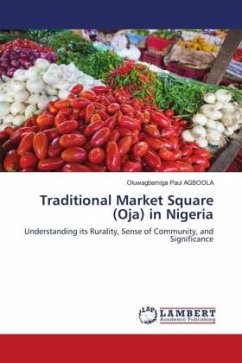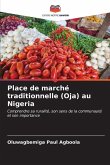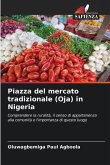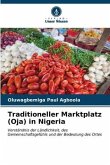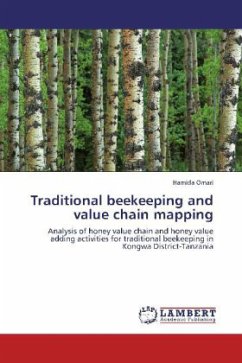This book explores the cultural and economic significance of traditional market squares in rural Nigerian communities. Despite modernization, the traditional market square or "Oja" remains a resilient aspect of Nigerian culture. The author delves into their history and importance, shedding light on the unique traditions and customs of Nigerian communities. The book stands out with empirical evidence documenting the architecture, layout, and organization of these market squares. Drawing from interviews, historical records, and anthropological studies, the author examines how these markets contribute to rural Nigerian society. The sense of community they foster and their role in economic, social, and environmental sustainability are highlighted. Covering diverse topics in People and Place Study, the book concludes with insights into ethnic interactions in Nigeria. This enlightening read benefits anthropology, economics, and Nigerian culture enthusiasts, as well as researchers, professionals, students, architects, urban designers, and policymakers.
Bitte wählen Sie Ihr Anliegen aus.
Rechnungen
Retourenschein anfordern
Bestellstatus
Storno

